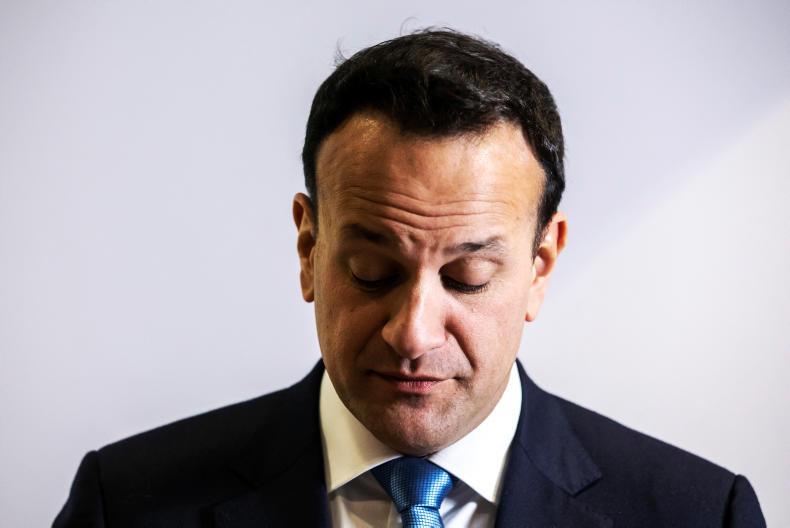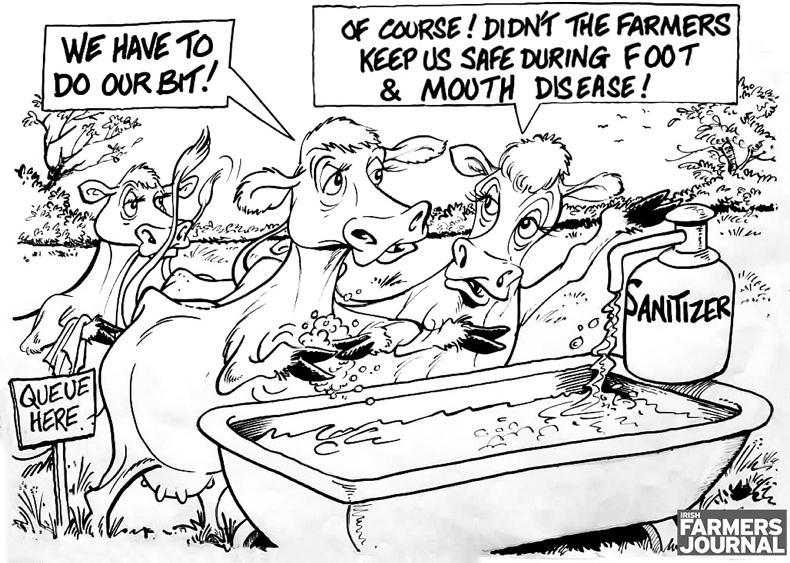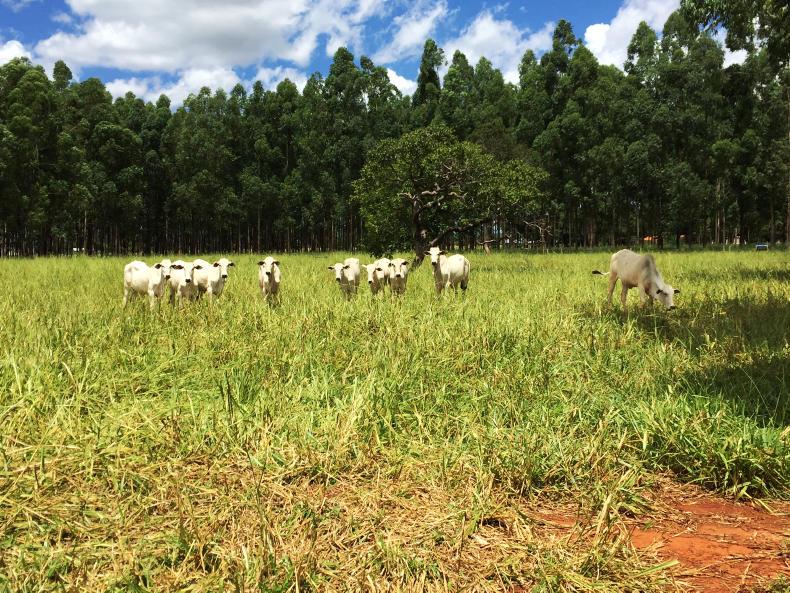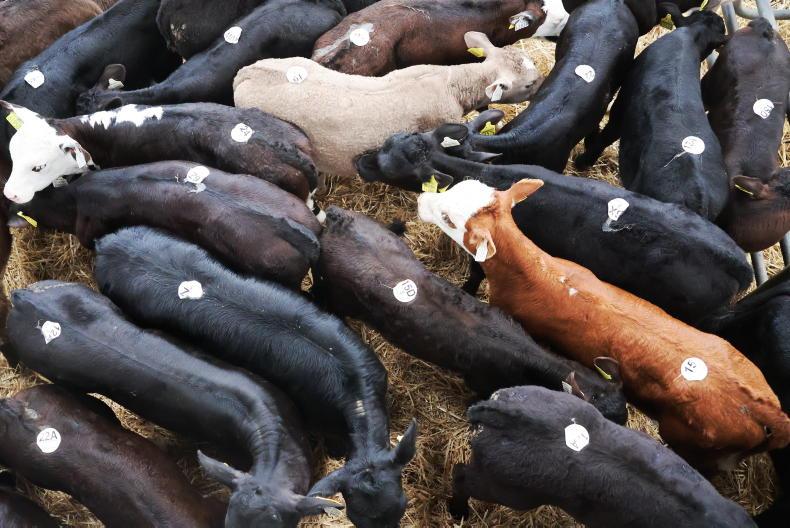In good times we can all be guilty of taking people and the services they provide for granted. Their reliability, their commitment and indeed the fundamental role they play in maintaining a functioning society is often ignored. It is only in the face of a crisis that the role these real heroes play in underpinning our society shines through.
Let us never again take our health service for granted and let us never forget the doctors, nurses, hospital porters and administration staff that have put the good of society before their personal health.
Let us also acknowledge the heroes of our food chain: the retail workers and local shops that have kept the shelves stocked with food and the tills staffed; the lorry drivers, whom we so often curse on the roads, that have kept on trucking to ensure supply and distribution chains continue to function – from collecting fresh milk on farms to delivering cheese to retailers and everything in between; and the thousands of workers in the food processing sector for whom working from home is not an option.
Where would our society be today if our cows were trees and we were dependent on a delivery of beef from Brazil or a container of cheese from New Zealand?
Let us not forget our farmers and let us reflect on some of the commentary that has been directed at the sector in recent months. Today, tomorrow and in the weeks and months ahead, our farmers will get out of bed and go to work to make sure our processing industry has food to process, our hauliers have food to haul, our shops food to sell and our society is fully nourished.
Value of Irish food production
Where would our society be today if our cows were trees and we were dependent on a delivery of beef from Brazil or a container of cheese from New Zealand to keep our shelves stocked?
When we come out the other side, let us have a conversation as to why the globalisation of food production should never again be viewed through the same lens as car manufacturing or luxury goods. Let us put food production and food security back at the heart of the CAP and for both to be recognised as the most important public good delivered by farmers.

An Taoiseach Leo Varadkar. \ Philip Doyle
Let’s us also not forget our current Government. Some call for it to stand aside and for a national government to be formed. For what purpose should we distract experienced politicians from dealing with the crisis at hand?
There is little evidence of any sound advice or policy proposals from any politician across the political spectrum being ignored. Instead, we should keep their focus on protecting and helping society – and not on government formation.
Let us have a discussion in time as to what impact the new economic landscape we face will have on the political landscape.
Will the policy promises that shaped voting decisions in February be the priority of society as we work to rebuild our economy?
Finally, let us not forget what makes Ireland such a great country – our resolve, discipline, innovation and most of all our ability to put differences aside and unite in the face of a crisis.
We will see our society emerge from this crisis and we all have a role to play to ensure we get there.
Responsibility does not lie with the Government or our health service but with each of us as individuals. Our responsibility to each other starts with following advice, adhering to protocols and looking out for the vulnerable within our community.
The farming community should show no tolerance to those whose actions put others at risk.
Coronavirus: your farming questions answered
Beef: time to suspend South American beef imports

Our market intelligence points to an EU beef trade where demand remains solid but the outlook is uncertain. Restrictions to the food service sector have seen a fall-off in demand of between 25-60%, with the biggest drops coming in member states where the coronavirus restrictions are most severe.
However, in regions where the food service sector is hardest hit, retail demand is showing the strongest gains, in some cases almost doubling.
Most forecast that in the weeks ahead retail demand will ease but continue to run between 30-40% ahead of normal.
It is likely that as new technologies are deployed to deliver food offerings direct to consumers, the food service sector will start to rebuild in the weeks ahead.
Minced meat has seen the strongest surge in demand due to its versatility but there are serious concerns around demand for the higher value steak meat.
Safeguards
This issue could be quickly addressed by the EU triggering the safeguard mechanism, contained within international trade deals, on beef imports from South America.
The mechanism allows the EU to cease imports for a period of two years where there is severe market disruption. The move would greatly rebalance the carcase mix in favour of farmers with a drop-off in the volume of steak cuts coming on the market.
The mechanism was recently triggered to curtail imports of rice into the EU from Cambodia at the behest of Italy.
Meanwhile, the position of the EU this week on the movement of people and goods – especially foodstuffs including livestock – reveals just how essential food supply is to society. While the EU acknowledged and accepted the need for regulation of people movement (despite it being one of the four freedoms in the single market), it delivered strong guidelines on maintaining the movement of goods.
The European Commission indicated that maintenance of the flow of goods and services in the single market is essential in the response to the COVID-19 crisis.
Of particular interest to farmers will be the inclusion of food – including livestock – as part of the category of essential goods which are to be given priority for movement within the EU in the crisis.
This should enable trade between Ireland and our export markets continue with minimal disruption, as has been the way so far.
Agricultural Land Price Report: average price of €8,971 per acre
This week’s paper carries our special agricultural land price report for 2019. The 72-page publication breaks down the price paid for agricultural land on a county-by-county basis.
Our property correspondent Odile Evans reports a largely steady market with growth in the national economy not translating into higher land prices in the same way as it did during the Celtic Tiger.
At an average of €8,971 per acre, the price of land nationally was back 1.1%. Overall prices for the last five years have continued to hover around the €9,000 per acre mark.
We would like to thank all the auctioneers that provide us with land price data from around the country.
Dairy: private storage aid
In the face of the unfolding crisis, it is welcome to see the Irish dairy industry and the Department of Agriculture taking a proactive approach by calling on the European Commission to reopen its private storage aid (PSA) scheme for products like butter, cheese and milk powder. A reopening of the PSA scheme would send a strong signal to markets from the European Commission and help support farmgate milk prices in the weeks and months ahead.
Health and safety: following the rules
If farmers want our marts to be kept open, then they must adhere to the regulations – otherwise they will be closed. There is no reason why the marts cannot continue to function and yet still comply with the new protocols.
A lockdown on the marts would have devastating impact on the sector – there should be a zero-tolerance approach to non-compliance in order to protect both the service and those operating on the mart premises.
In good times we can all be guilty of taking people and the services they provide for granted. Their reliability, their commitment and indeed the fundamental role they play in maintaining a functioning society is often ignored. It is only in the face of a crisis that the role these real heroes play in underpinning our society shines through.
Let us never again take our health service for granted and let us never forget the doctors, nurses, hospital porters and administration staff that have put the good of society before their personal health.
Let us also acknowledge the heroes of our food chain: the retail workers and local shops that have kept the shelves stocked with food and the tills staffed; the lorry drivers, whom we so often curse on the roads, that have kept on trucking to ensure supply and distribution chains continue to function – from collecting fresh milk on farms to delivering cheese to retailers and everything in between; and the thousands of workers in the food processing sector for whom working from home is not an option.
Where would our society be today if our cows were trees and we were dependent on a delivery of beef from Brazil or a container of cheese from New Zealand?
Let us not forget our farmers and let us reflect on some of the commentary that has been directed at the sector in recent months. Today, tomorrow and in the weeks and months ahead, our farmers will get out of bed and go to work to make sure our processing industry has food to process, our hauliers have food to haul, our shops food to sell and our society is fully nourished.
Value of Irish food production
Where would our society be today if our cows were trees and we were dependent on a delivery of beef from Brazil or a container of cheese from New Zealand to keep our shelves stocked?
When we come out the other side, let us have a conversation as to why the globalisation of food production should never again be viewed through the same lens as car manufacturing or luxury goods. Let us put food production and food security back at the heart of the CAP and for both to be recognised as the most important public good delivered by farmers.

An Taoiseach Leo Varadkar. \ Philip Doyle
Let’s us also not forget our current Government. Some call for it to stand aside and for a national government to be formed. For what purpose should we distract experienced politicians from dealing with the crisis at hand?
There is little evidence of any sound advice or policy proposals from any politician across the political spectrum being ignored. Instead, we should keep their focus on protecting and helping society – and not on government formation.
Let us have a discussion in time as to what impact the new economic landscape we face will have on the political landscape.
Will the policy promises that shaped voting decisions in February be the priority of society as we work to rebuild our economy?
Finally, let us not forget what makes Ireland such a great country – our resolve, discipline, innovation and most of all our ability to put differences aside and unite in the face of a crisis.
We will see our society emerge from this crisis and we all have a role to play to ensure we get there.
Responsibility does not lie with the Government or our health service but with each of us as individuals. Our responsibility to each other starts with following advice, adhering to protocols and looking out for the vulnerable within our community.
The farming community should show no tolerance to those whose actions put others at risk.
Coronavirus: your farming questions answered
Beef: time to suspend South American beef imports

Our market intelligence points to an EU beef trade where demand remains solid but the outlook is uncertain. Restrictions to the food service sector have seen a fall-off in demand of between 25-60%, with the biggest drops coming in member states where the coronavirus restrictions are most severe.
However, in regions where the food service sector is hardest hit, retail demand is showing the strongest gains, in some cases almost doubling.
Most forecast that in the weeks ahead retail demand will ease but continue to run between 30-40% ahead of normal.
It is likely that as new technologies are deployed to deliver food offerings direct to consumers, the food service sector will start to rebuild in the weeks ahead.
Minced meat has seen the strongest surge in demand due to its versatility but there are serious concerns around demand for the higher value steak meat.
Safeguards
This issue could be quickly addressed by the EU triggering the safeguard mechanism, contained within international trade deals, on beef imports from South America.
The mechanism allows the EU to cease imports for a period of two years where there is severe market disruption. The move would greatly rebalance the carcase mix in favour of farmers with a drop-off in the volume of steak cuts coming on the market.
The mechanism was recently triggered to curtail imports of rice into the EU from Cambodia at the behest of Italy.
Meanwhile, the position of the EU this week on the movement of people and goods – especially foodstuffs including livestock – reveals just how essential food supply is to society. While the EU acknowledged and accepted the need for regulation of people movement (despite it being one of the four freedoms in the single market), it delivered strong guidelines on maintaining the movement of goods.
The European Commission indicated that maintenance of the flow of goods and services in the single market is essential in the response to the COVID-19 crisis.
Of particular interest to farmers will be the inclusion of food – including livestock – as part of the category of essential goods which are to be given priority for movement within the EU in the crisis.
This should enable trade between Ireland and our export markets continue with minimal disruption, as has been the way so far.
Agricultural Land Price Report: average price of €8,971 per acre
This week’s paper carries our special agricultural land price report for 2019. The 72-page publication breaks down the price paid for agricultural land on a county-by-county basis.
Our property correspondent Odile Evans reports a largely steady market with growth in the national economy not translating into higher land prices in the same way as it did during the Celtic Tiger.
At an average of €8,971 per acre, the price of land nationally was back 1.1%. Overall prices for the last five years have continued to hover around the €9,000 per acre mark.
We would like to thank all the auctioneers that provide us with land price data from around the country.
Dairy: private storage aid
In the face of the unfolding crisis, it is welcome to see the Irish dairy industry and the Department of Agriculture taking a proactive approach by calling on the European Commission to reopen its private storage aid (PSA) scheme for products like butter, cheese and milk powder. A reopening of the PSA scheme would send a strong signal to markets from the European Commission and help support farmgate milk prices in the weeks and months ahead.
Health and safety: following the rules
If farmers want our marts to be kept open, then they must adhere to the regulations – otherwise they will be closed. There is no reason why the marts cannot continue to function and yet still comply with the new protocols.
A lockdown on the marts would have devastating impact on the sector – there should be a zero-tolerance approach to non-compliance in order to protect both the service and those operating on the mart premises.













SHARING OPTIONS